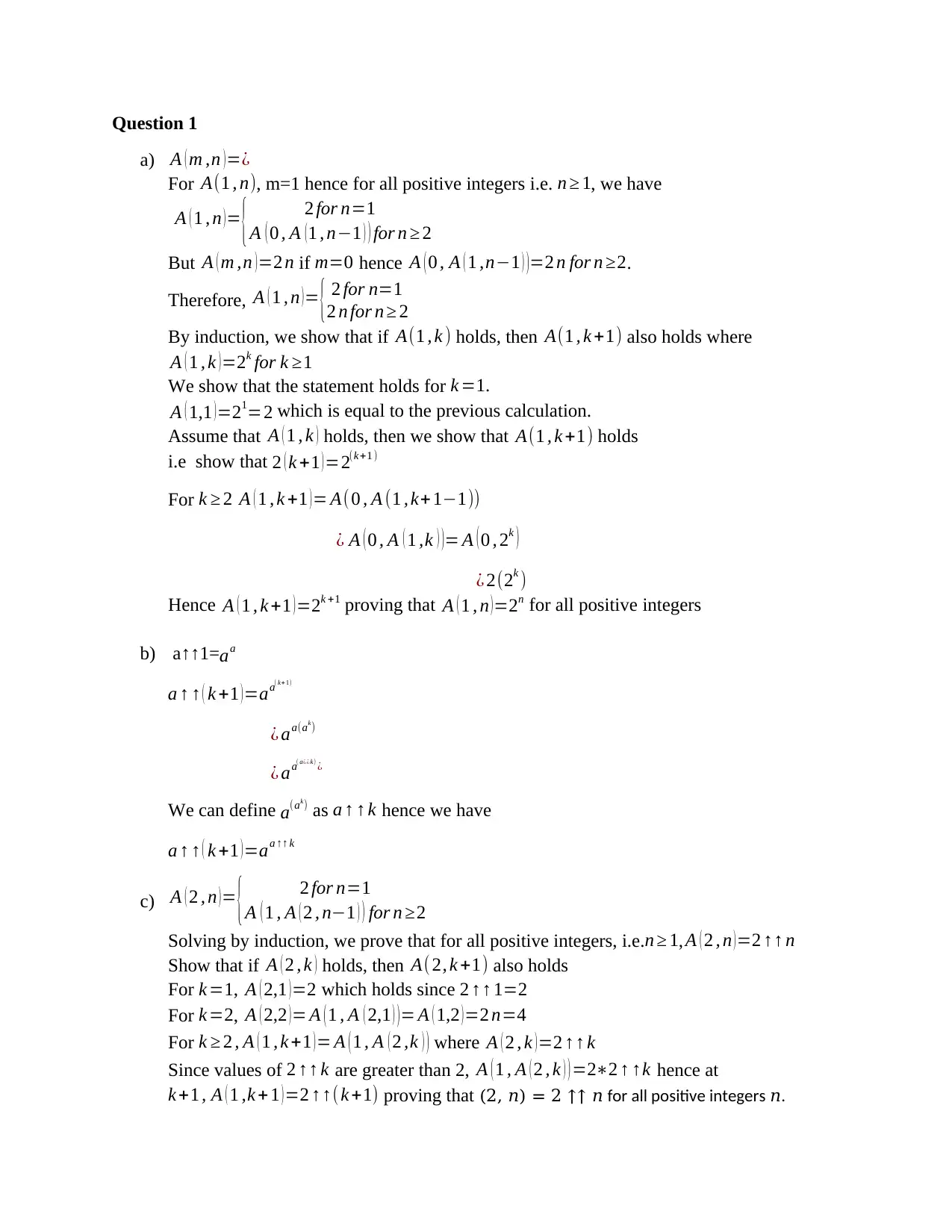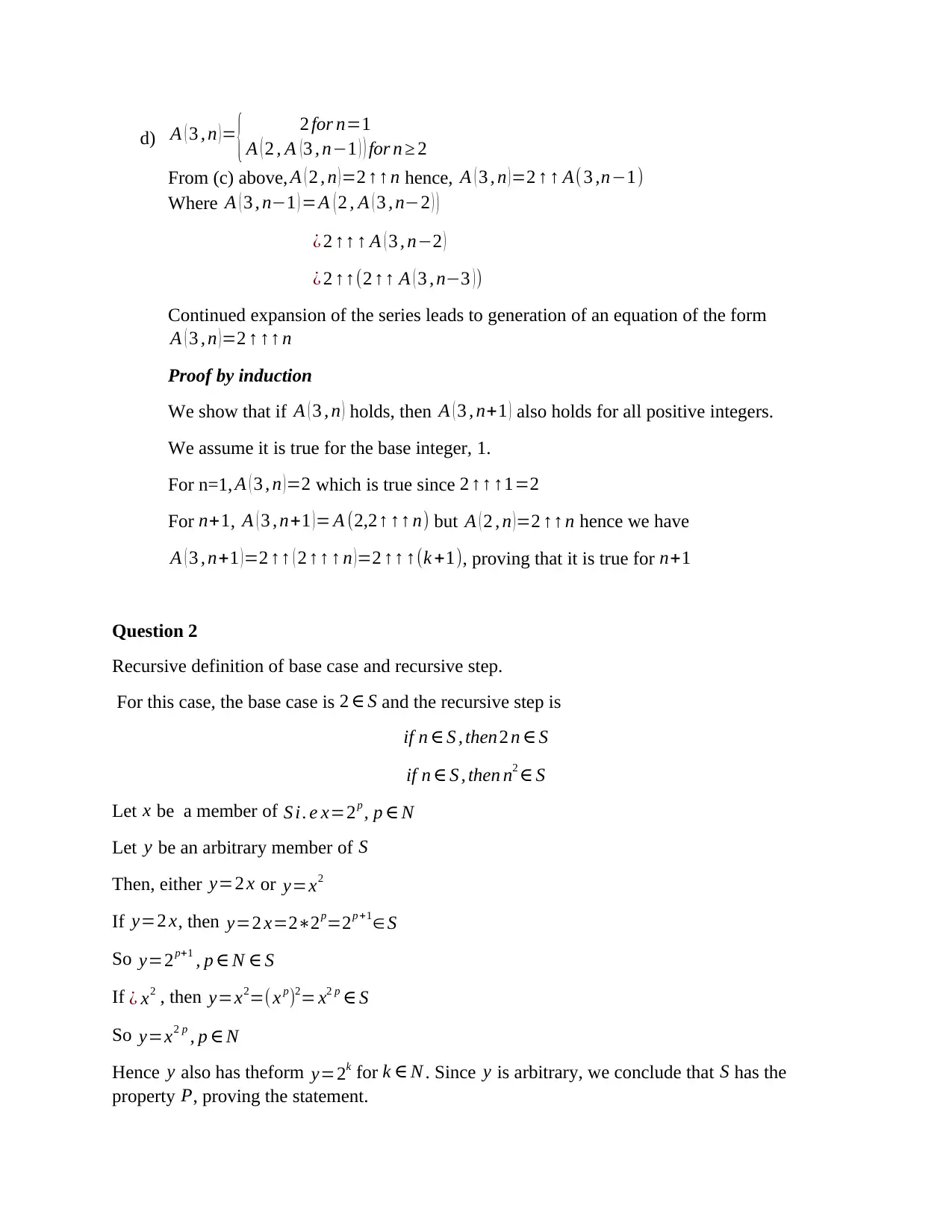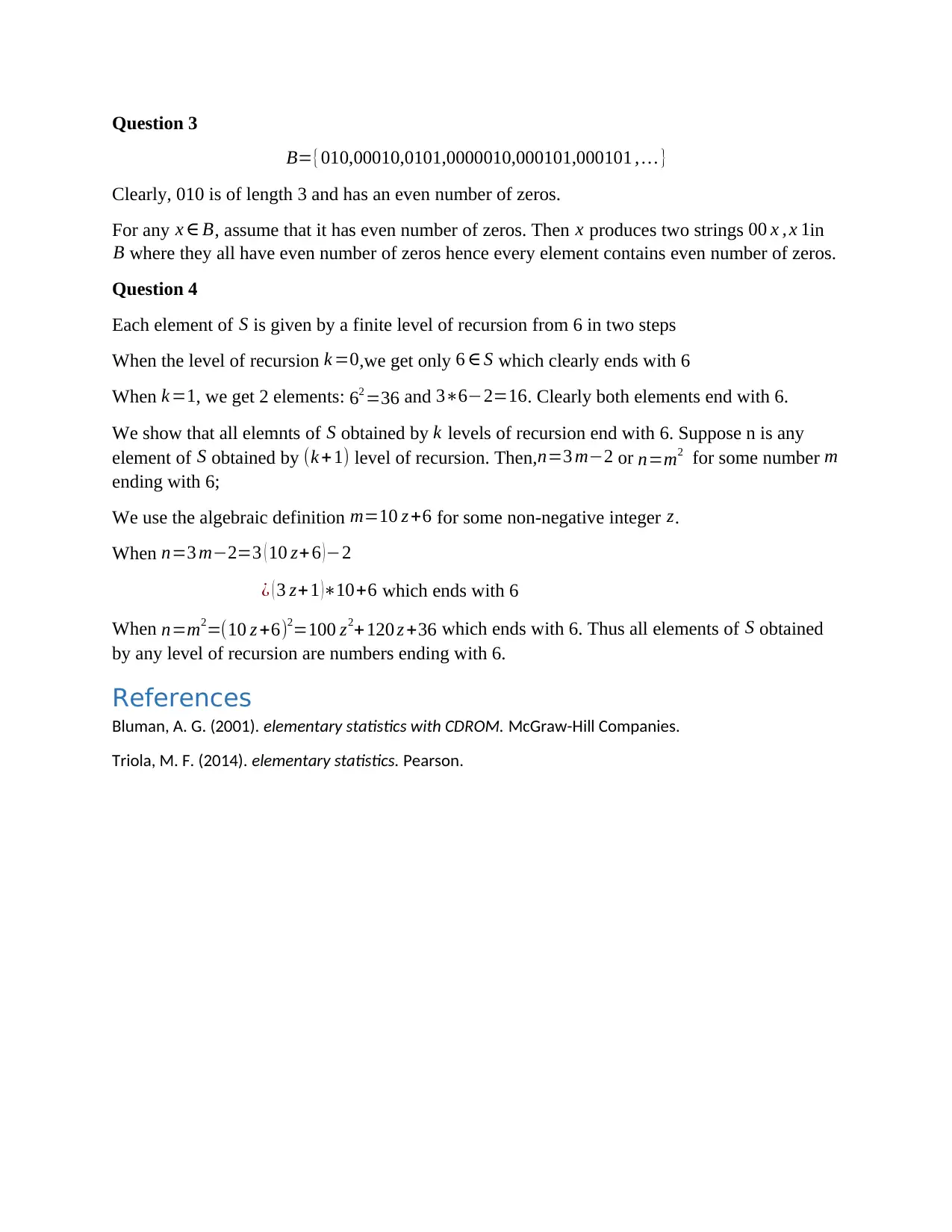In-Depth Analysis of Recursive Functions and Set Theory Concepts
VerifiedAdded on 2023/06/05
|3
|1203
|468
Homework Assignment
AI Summary
This assignment delves into the concepts of recursive functions and set theory, providing detailed solutions and explanations. It begins by analyzing the Ackermann function, demonstrating its behavior for specific inputs and proving its properties using mathematical induction. The assignment then explores recursive definitions of sets, proving that a given set possesses a certain property P based on its recursive structure. Furthermore, it examines formal languages, identifying strings with specific characteristics, such as an even number of zeros. Finally, the assignment investigates sets generated through recursive processes, proving that all elements of a particular set end with the digit 6. This comprehensive analysis offers a thorough understanding of recursive functions, set theory, and their applications in computer science. Desklib provides access to this and many other solved assignments for students.
1 out of 3










![[object Object]](/_next/static/media/star-bottom.7253800d.svg)